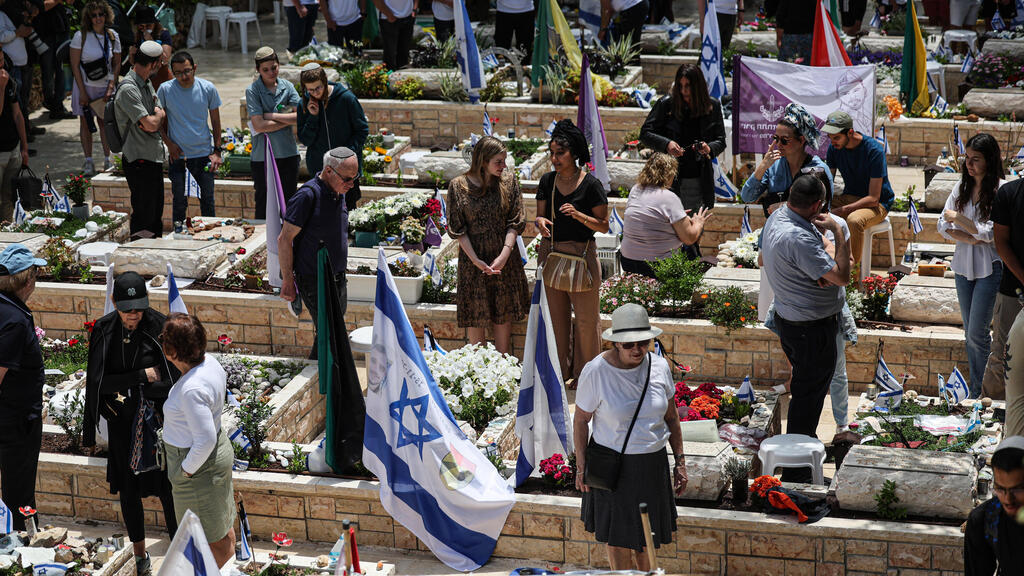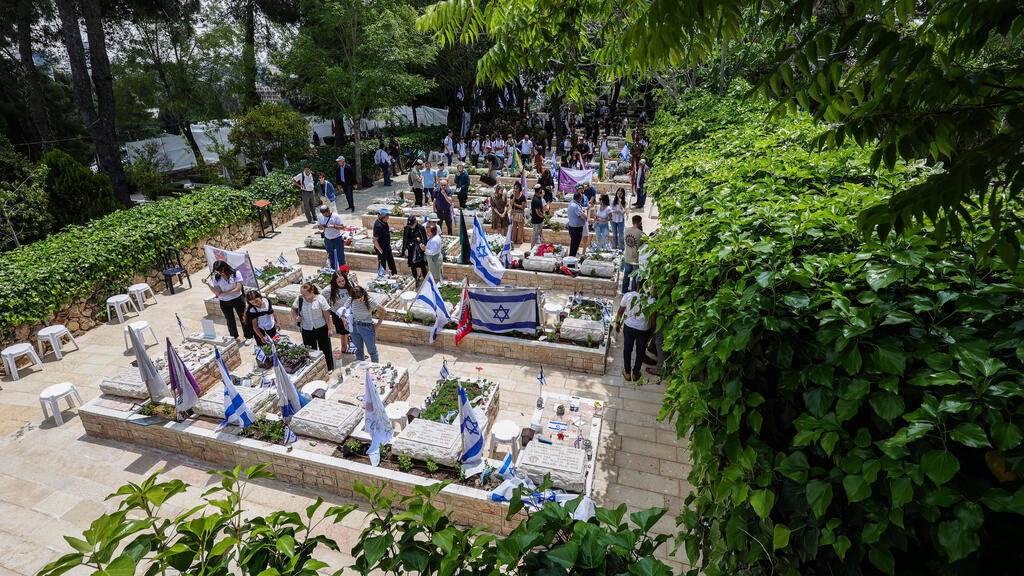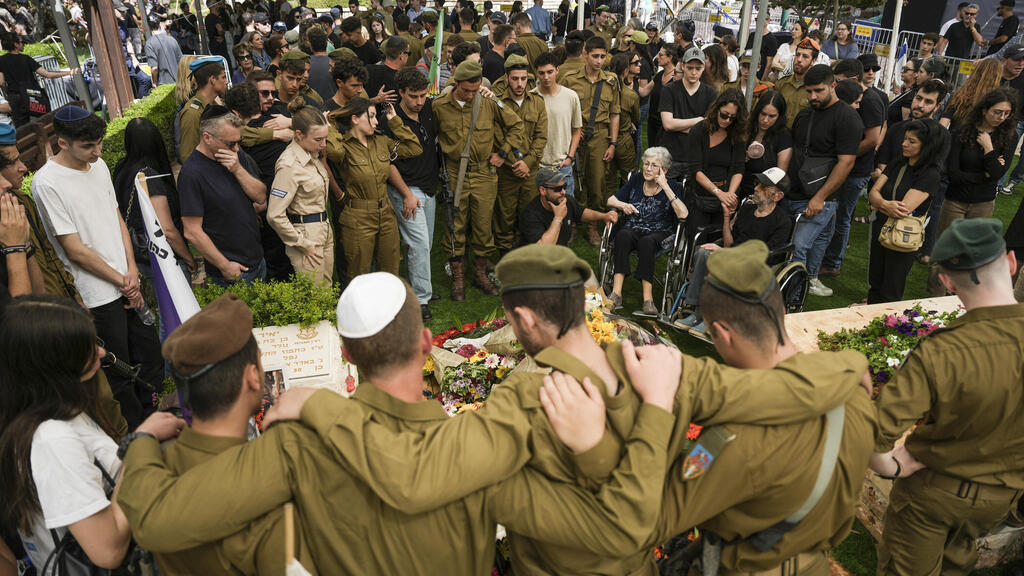May 13 marks this year’s Memorial Day in Israel, known in Hebrew as Yom HaZikaron. In the wake of the Oct. 7 attacks and the ongoing war with Gaza, this year’s commemoration is set to be a particularly painful one as the country mourns more than 600 fallen soldiers and more than 700 civilian victims of terror.
The annual commemoration of Israel’s fallen soldiers dates back to the years immediately following Israel’s establishment. In 1963, the day was officially enacted into law, and in 1998, the scope of the day was expanded to commemorate victims of terror attacks in Israel as well as fallen soldiers.
In 2023, the scope was further expanded after the Ministry of Diaspora Affairs and Combating Antisemitism announced that victims of antisemitic terror attacks outside of Israel would also be commemorated on Yom HaZikaron.
Yom HaZikaron touches all sectors of Israeli society, not just Israel’s Jewish majority. According to Israel’s conscription laws, Jewish men and women, as well as men from the Druze and Circassian minorities, are required to serve in Israel’s military. Conscription of Bedouin men is not mandatory, but many Bedouin men choose to volunteer in the army as an expression of their identification with Israel.
The Bedouin community has much to mourn this Yom HaZikaron. Two Bedouin men are currently held hostage in Gaza, and 21 Bedouin soldiers were killed in just the first two months of war with Hamas.
Habib Al-Kean, a 21-year-old sergeant in the Golani Brigade’s 13th Battalion, was one such soldier. He was killed on Oct. 7 at the Paga military outpost near the Gaza border.
Al-Kean’s father, Musa Al-Kean, spoke to The Media Line about his son.
“Before entering the army, he wanted to enlist in the police,” Al-Kean said. “He did a course for eight months, which he passed, but he didn’t manage to get in at the end. So, he decided to enter the army, in the Golani Unit, to fight for his country.”
Al-Kean explained that many Bedouins join the Israeli military and police force because of their sense of duty toward the country. Many Bedouins say that they have no other home but Israel.
“The army is a clear example that it doesn’t matter what is your background, ethnicity, and religion, because we are all the same,” he said. “As Muslims, we fight side by side with Christians, Druze, and Jews because we are all united by our love for the country.”
He described the importance of gathering with families of other fallen soldiers.
“All the families of fallen soldiers from the Givati Unit are inside a WhatsApp group, and we talk almost every day to support one another,” he said. “We also organize meetings with friends and relatives to remember our dear ones.”
The Al-Kean family is still suffering from the loss and struggling to carry on without Habib.
“We are surviving and not living after his death, but we just hope that nobody will lose a son like us in the future,” Al-Kean said. “I truly hope that the war will end once and for all. We have suffered enough. This year’s Yom HaZikaron is going to be very tough for each citizen of this country, and this trauma will stick with us for years to come.”
Officer Jamal Abbas of the 101st Paratroopers Brigade Battalion was killed battling Hamas fighters in Gaza on Nov. 18. Abbas, a Druze soldier, was 23.
The Media Line spoke to his brother, Gideon Abbas, who recalled seeing Jamal for the last time on Oct. 7.
“He was in Tiberias with his friends, enjoying his time there, and suddenly, the day after, they called him to go to the south,” Abbas said. “He took his vest and hugged us for the last time before going to Gaza. This was the last time that we saw him.”
Abbas said Jamal knew he might not return from the war, but he tried not to show his concerns to his family the few times they spoke on the phone.
Abbas explained that almost every male relative and member of his village, the northern town of Peki’in, has served in the Israeli military.
“Me and my father were reservists during this war. My uncle is a lieutenant colonel, and also my grandfather fought back in the day,” he said. “Most of the Druze here have a rooted history in the military.”
He explained that many Druze soldiers died fighting in the Gaza Strip, including Lt. Col. Salman Habaka, who commanded the Armored Corps’ 53rd Battalion. Habaka was killed on Nov. 2.
“We are a very tight community, and our parents know each other well. Each time that someone died on the battlefield, it was a huge hit for everyone,” Abbas said.
Following Jamal’s death, Abbas suffered an accident fighting in the north and couldn’t return to the army. Instead, he’s tried to support his parents and his sister and to look after his own mental health.
“In this country, we have always faced war and death somehow, but Oct. 7 was worse,” Abbas said. “Each one of us has lost someone, has friends in captivity, or has been back in the army. We are all living a huge trauma, and sometimes it is even difficult to ask for help.”
Despite the darkness, both the Al-Kean and Abbas families are trying to stay strong and find a source of hope.
“In this difficult time, we saw also a leadership deeply divided regarding the management of the war itself, and this affected us as citizens. Despite this, as Israeli people, we have been resilient,” Abbas said.





